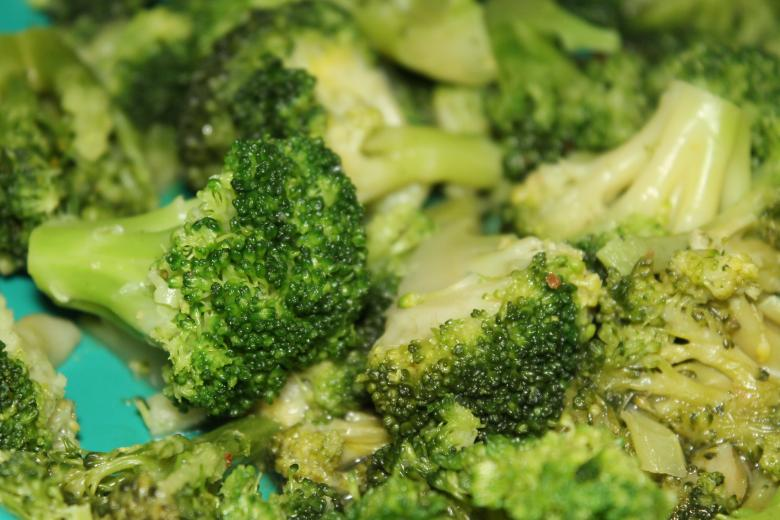
Benefits of Broccoli
Broccoli, which takes the place of winter on the tables with its soups, salads and meals, gives off a bad odor while being cooked. But if you know its benefits, you will forget this smell.
Nutritional Values of Broccoli
Broccoli, which looks like a tiny tree, causes many people to stay away because of the smell it emits when cooked. Broccoli, which comes from the Brassica oleracea plant family, like cabbage, Brussels sprouts, and cauliflower, contains loads of vitamins, minerals, fiber and antioxidants. Broccoli, which decorates the tables in winter in the form of garnishes, salads and soups, has many benefits.
1. Vitamin and Mineral Storage
Whether raw or cooked, broccoli is a vegetable that contains many nutritional values. About 100 grams of broccoli, which contains vitamins, minerals, fiber and bioactive components, contains:
- 6 g carbohydrates
- 2.6 g protein
- 0.3 g fat
- 2.4 g fiber
- 135% Vitamin C
- 11 percent vitamin A
- 116 percent vitamin K
- 14 percent vitamin B9 (folate)
- 8 percent potassium
- 6 percent phosphorus
- 3 percent selenium
Vitamin C is one of the most needed vitamins by the immune system. Vitamin C, which is abundant in broccoli, plays an important role in the prevention and treatment of diseases. It is accepted that 100-200 mg of vitamin C should be taken daily for the prevention of infections. Although oranges and strawberries come to mind when vitamin C is mentioned, this vitamin is found more in broccoli. With about 80 grams of broccoli, 84 percent of the daily vitamin C need is provided. Cooking methods can kill their nutritional value. While frying causes the food to decrease in vitamin C, steaming is seen as the healthiest cooking method.
2. Antioxidant Shield
Helping to prevent cell damage with the antioxidants it contains, broccoli protects the whole body by preventing inflammation. A substance called glucoraphanin turns into sulforaphane, a powerful antioxidant, during digestion. According to research, sulforaphane has many benefits, from lowering blood sugar to balancing cholesterol, from reducing cellular destruction to preventing the development of chronic diseases. It also helps protect your eye health with the antioxidants of lutein and zeaxanthin.
3. Effective in Preventing Inflammation
Broccoli is important in reducing all inflammation in the body, thanks to the flavonoid kaempferol. According to a study of tobacco addicts, those who ate broccoli had a significant reduction in inflammation.
4. Protective Against Cancer
There is no miracle food to prevent cancer. But vegetables and fruits are considered to support cancer prevention. Containing bioactive components, broccoli acts as a shield against chronic diseases, as do vegetables from many cruciferous families. Various studies have stated that broccoli is supportive in the prevention and treatment of breast, prostate, stomach, colorectal, kidney and bladder cancers.
5. Regulates Blood Sugar
Broccoli, which is especially important for diabetics to consume, is effective in regulating blood sugar. In a study, it was determined that insulin resistance decreased significantly in people with type 2 diabetes who regularly consumed broccoli daily for a month. This food, which is a good source of fiber, helps to lower blood sugar and control diabetes.
6. Protects Heart Health
LDL and triglyceride ratios, which are bad cholesterol, play an important role in heart diseases. Studies indicate that people who consume broccoli have lower LDL cholesterol, while good cholesterol HDL rises and triglyceride ratio decreases. It also helps in reducing the risk of heart attack with the antioxidants it contains. This fiber-rich food can be effective in reducing the risk of heart diseases.
7. Strengthens the Digestive System
Its rich fiber and antioxidant content make broccoli a beneficial food for digestive system health. It is effective in reducing inflammation in the large intestine by supporting the strengthening of the digestive system. This green food, which also helps to go to the toilet, prepares a good ground for the growth of good bacteria in the intestines.
8. Supports the Brain and Nervous System
Studies have revealed that dark green vegetables are important in maintaining brain and nervous system health. According to one study, the flavonoid of kaempferol in broccoli reduced the rate of brain damage and the risk of neural tissue inflammation. It is also stated that sulforaphane supports brain functions.
9. Anti-Aging
It is impossible to stop aging, but it is possible to reduce the effects of aging. Sulforaphane is known to be effective in slowing down aging.
10. Supporter of Oral and Dental Health
Vitamin and mineral store broccoli supports the protection of oral and dental health. Food rich in vitamin C and calcium also reduces the risk of gum disease. Kaempferol flavonoid shields against advanced gingival diseases and inflammation. Sulforaphane has also been shown in studies to reduce the risk of oral cancers. Some studies have stated that consuming this food raw destroys plaque and helps teeth appear whiter.












